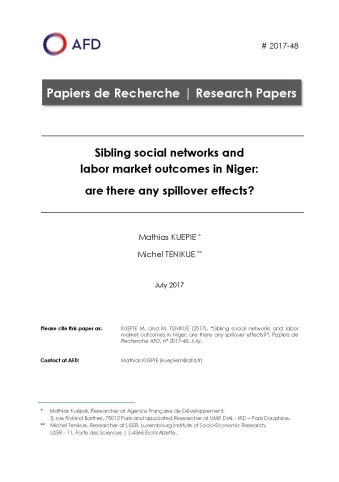Share the page
Sibling social networks and labor market outcomes in Niger: are there any spillover effects?
Published on

In this study, based on the Niger 2012 labor force survey, we assess the importance of the effect of siblings on Niger labor market integration and the potential heterogeneity of this effect. Our main result is that there is a sibling network spillover effect: for any given individual, having elder siblings in a given sector of activity increases his own probability of also integrating that sector. For those in particular whose siblings are in profitable public or private sectors, this means that they have additional chances to integrate these coveted sectors. We also show that siblings' network is gender sensitive: its effect is maximal when both siblings are of the same gender. Another important result which emerges from this study is that siblings’ network acts as a substitute in case of poor human capital or family background resources.
Useful Information
-
Authors
-
Michel TENIKUE
-
Coordinators
-
Mathias KUEPIE
-
Edition
-
48
-
Number of pages
-
30
-
ISSN
-
2492 - 2846
-
Collection
-
Research Papers
